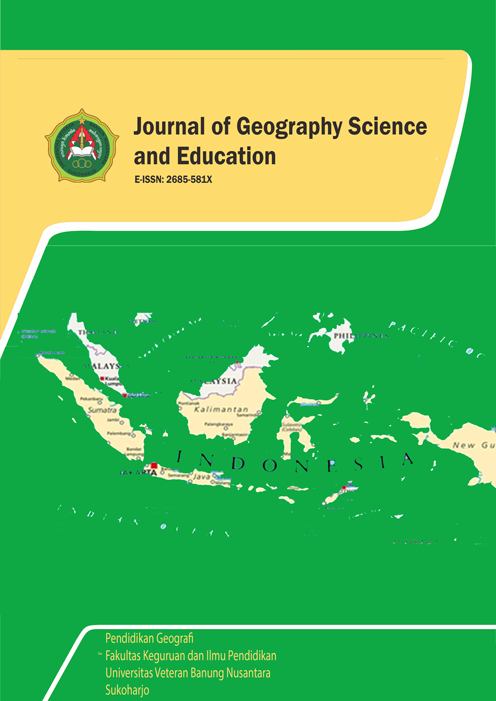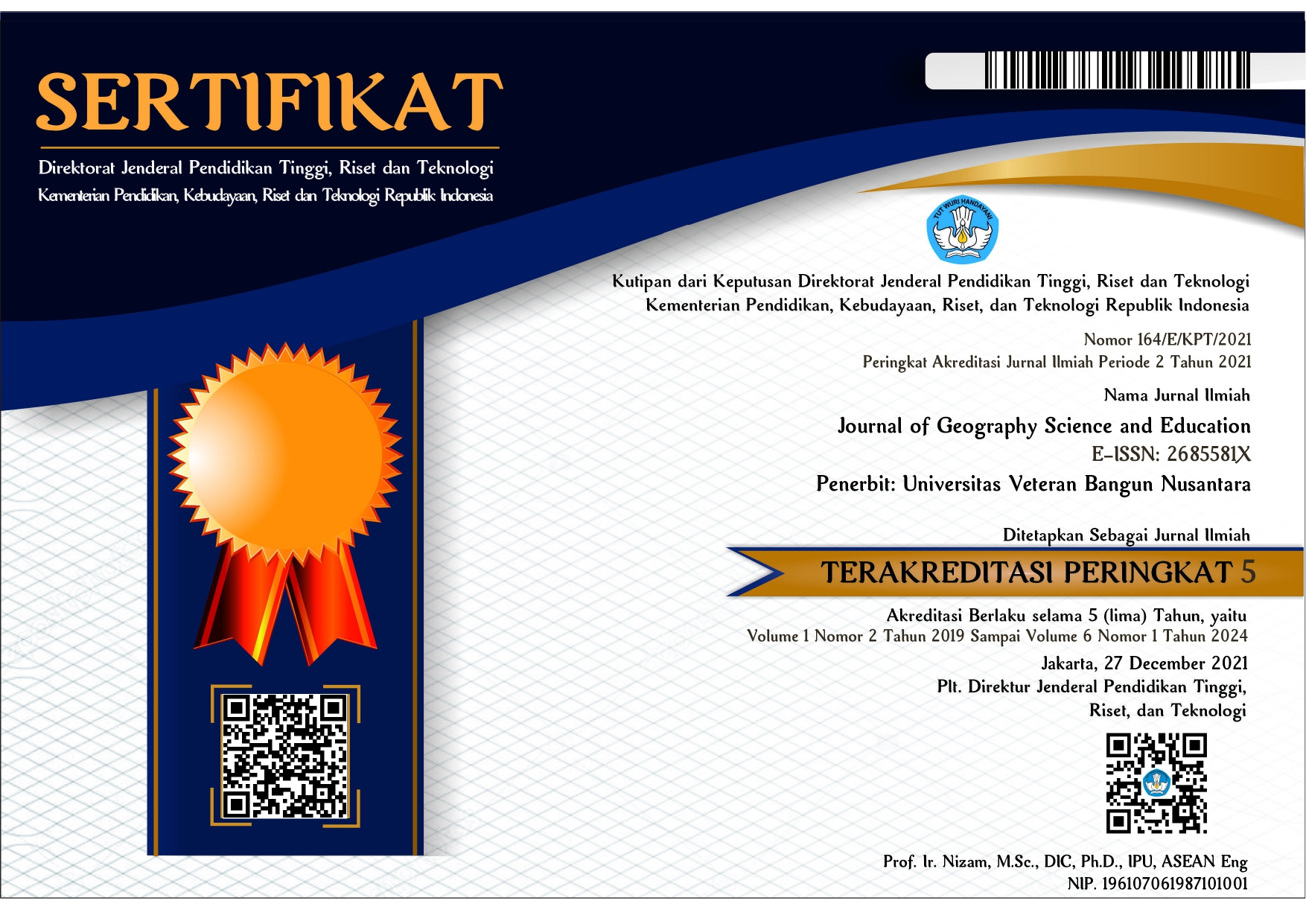The Potential of the Guitar Craft Industry in Mancasan Village, Baki District in 2021
DOI:
https://doi.org/10.32585/jgse.v4i2.2331Keywords:
Guitar Industry, Potency, Marketing, Social, EconomyAbstract
Mancasan Village is one of the villages in Baki District, Sukoharjo Regency. Mancasan Village is one of the villages that is famous for the existence of the guitar industry in the area. The guitar industry is a potential for Mancasan Village because the guitar industry can be one of the successful developments of a region, namely the ability to create job opportunities. The guitar industry in this Mancasan Village classified to in industry small, because on generally every House business this employ around 5-15 employee people, type ownership from business guitar the is individual, using technology which simple and traditional, no have permission business, and the place business which used is the place live or their house alone. The production of guitars in Mancasan Village used to be only through word of mouth or by selling their products directly to music shops. However, along with the times and increasingly sophisticated technology, many guitar craftsmen in Mancasan Village are now marketing their guitar productions online. The potential of the guitar industry in Mancasan Village has an impact on the surrounding community, both the impact on social life and the impact on the economy of the people in Mancasan Village.Downloads
References
Adi, P. (2009). Analysis of Guitar Industry Business Development in Baki District, Sukoharjo Regency in 2003 and 2008 . Essay. Muhammadiyah Surakarta university.
Hastiningsih, WT (2015). Increasing human resources for guitar craftsmen as a creative industry in Kembangan, Sukoharjo, Central Java. HOTELIER JOURNAL Polytechnic Indonusa Surakarta ISSN: 2442-7934 Vol.1 No.2: 47-59.
Itok, Aldino. 2018 . Spatial Analysis of the Kite Industry Home in Grogol Village, Grogol District, Sukoharjo Regency, 2018. Thesis on Geography Education at the Veterans University Bangun Nusantara Sukoharjo.
Moleong, Lexy. 2014. Qualitative Quantitative Research Methods . Bandung: PT Pemuda Rosdakarya.
Muhadzib, TG (2018). Analysis of the Potential and Development of the Guitar Industry in Baki District, Sukoharjo Regency, Central Java (Doctoral dissertation, University of Muhammadiyah Surakarta).
Murti, Eri. 2009. Study of Tile Industry in Demakan Village, Mojolaban District, Sukoharjo Regency in 2007 . Thesis on Geography Education at the University of Veterans Bangun Nusantara Sukoharjo.
Rafiani, Mind. 2018. Marketing Range of Home Industry Peek in Sendangrejo Village, Sumberlawang District, Sragen Regency. Thesis on Geography Education at the University of Veterans Bangun Nusantara Sukoharjo.
Rokah, BN (2011). Guitar Craft Industry and Empowerment Efforts (Socio-Economic Case Study of the Mancasan Village Community, Baki District, Sukoharjo Regency).
Sugiyono. 2014. Qualitative Quantitative Methods and R&D. Bandung: Alphabeta.
Downloads
Published
How to Cite
Issue
Section
License
Authors who publish with the Journal of Geography Science and Education agree to the following terms:
- Authors retain copyright and grant the journal the right of first publication with the work simultaneously licensed under a Creative Commons Attribution License (CC BY-SA 4.0) that allows others to share the work with an acknowledgment of the work's authorship and initial publication in this journal.
- Authors are able to enter into separate, additional contractual arrangements for the non-exclusive distribution of the journal's published version of the work (e.g., post it to an institutional repository or publish it in a book), with an acknowledgment of its initial publication in this journal.
- Authors are permitted and encouraged to post their work online (e.g., in institutional repositories or on their website) prior to and during the submission process, as it can lead to productive exchanges, as well as earlier and greater citation of published work.










